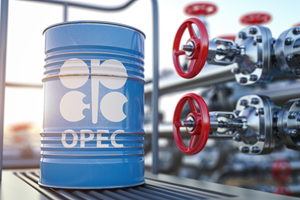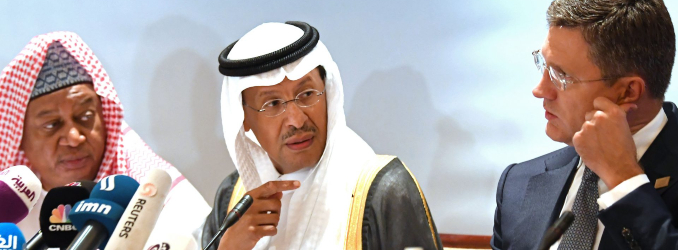(Bloomberg) – OPEC+ leader Saudi Arabia wants the group to consider reviving more oil production ahead of its scheduled return at the end of next year amid a push to reclaim market share, people familiar with the matter said.

Key alliance members will hold a video conference on Sunday that will consider what to do with a 1.66 million barrels a day tranche of halted supplies, having just fast-tracked the return of a previous layer over the past five months. Brent oil futures fell as much as 2.4%
No decision has been made, and it’s not clear whether any increase would be agreed as soon as Sunday or only in later months, some of the people said. Saudi Arabia, which drove the accelerated restart in a bid to recapture global market share, wants to further boost production as it seeks to offset lower prices with higher volumes, they said. Any proposal to increase production could run into opposition from other members keen to prop up prices.
If it happens, such a move would cement a dramatic OPEC+ strategy shift toward defending market share over prices, piling pressure on some member nations, especially those that can’t pump more. Saudi Arabia’s Crown Prince Mohammed bin Salman is set to visit Washington in November to meet President Donald Trump, who’s called for lower fuel prices.
A range of options remains possible, including pausing hikes for a period, the people added. The OPEC+ alliance is jointly led by the Saudis and Russia.
Delegates from the Organization of the Petroleum Exporting Countries have said the Saudis are eager to claw back sales volumes ceded to rivals like US shale drillers.
“OPEC+ is likely to keep adding barrels, outstripping annual demand growth,” Henning Gloystein, managing director for energy, climate and resources at Eurasia Group said in a note. “The producer group is committed to retaking market share,” even though actual increases may fall short of the pledged amounts.
Officials in Saudi Arabia weren’t immediately available for comment outside the country’s normal office hours.
Further production increases by OPEC+ threaten to swell a surplus in the fourth quarter anticipated by forecasters like the International Energy Agency, adding to downward pressure on prices. Even so, oil futures — which initially fell when the group began restoring its 2.2 million bpd of shuttered supply back in April — have actually rallied since.
While extra oil would be a boon for consumers and a win for Trump, it’s a financial threat for producers from the US shale industry to OPEC+ members themselves.
Trump has called for lower prices in order to cushion the cost of living and tame inflation while he presses the Federal Reserve to reduce interest rates. The president has also said that weaker prices will help him pressure Russia to end its war against Ukraine.
Sunday’s meeting is one of the countries’ regular monthly gatherings to review the oil market and adherence with existing supply restrictions.

